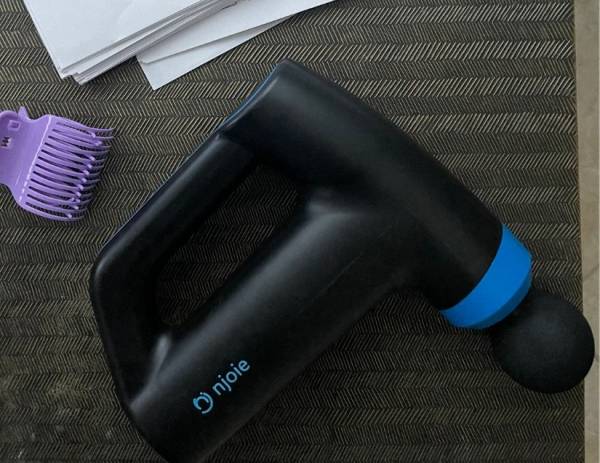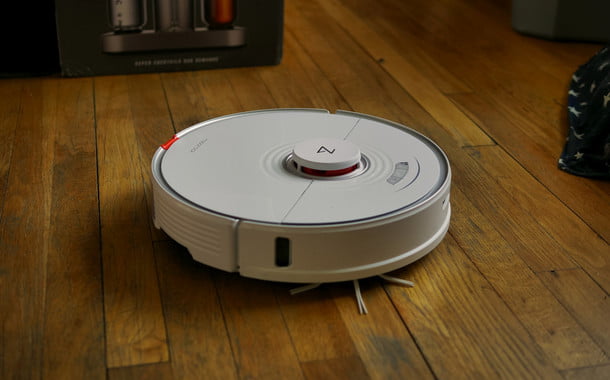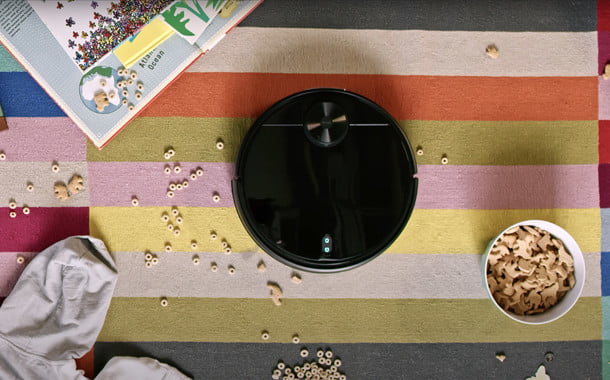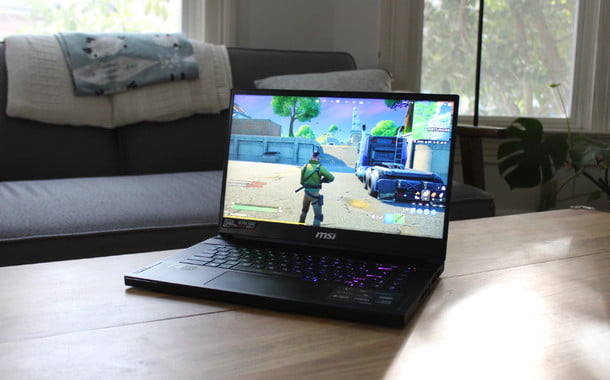Train Hard, Recover Harder | Breaking Muscle
Because of my email inbox and Instagram DMs, post workout recovery is a hot topic. I get all sorts of questions about recovery techniques.
- "Can you rate my supplement stacks?"
- "Should I do active recovery training?"
- "When do I foam?"
- "How would you change my diet on rest days?"
- "What post-exercise stretching routine should I do?"
- "Do ice baths or cold showers help my winnings?"
- "What about cupping, compression garments, and percussion massagers?"
I'm glad people are paying some attention to their recovery. Unfortunately, I think they are paying their attention to the wrong pieces of the recovery puzzle. In this series of articles, I'm going to help you maximize your recovery and results by focusing on what really matters.
I will explain::
- Why stress is a double-edged sword and how to deal with it.
- Why recovery starts with great programming
- The two most powerful recovery tools and how to optimize them
- Six other recovery methods that work
This trend towards paying more attention to recreation is admirable.
In part, this is not surprising I like to remind people that instead of lifting bigger and stronger weights, they are recovering from lifting weights.
I have tried many times to illustrate the importance of recovery by presenting progress as a simple equation:
Stimulus + recovery = adjustment
Stress can be good
Stress can be both good and bad. Good stress, or what psychologists call eustress, is the type of stress we feel when we are excited. Exercise is a burden on the body. With sufficient dosage, it is undoubtedly useful.
Bad stress comes in two forms:
- Acute Stress triggers the body's stress response, but these triggers and emotions are not happy or exciting. In general, acute stress does not take a heavy toll. The stress response is fleeting and the body quickly returns to homeostasis or its pre-stress state.
- Chronic Stress is bad. It occurs when we are repeatedly exposed to stressors that take a heavy toll. We often feel down, overwhelmed, and trapped by this stress. For example, a stressful job with a donkey for a boss or an unhappy relationship at home can cause chronic stress.
Your tolerance and ability to cope with stress are different from mine.
Our tolerance also fluctuates over time. There is only so much stress to deal with. When you are under too much pressure you become overwhelmed. Your recovery from exercise will suffer during times of high stress.
Managing your stress level improves the quality of life.
It improves your digestion, rest, mood, and productivity. It will also improve your muscle building and fat loss.
Coping with stress; Not avoidance
Note that I am calling it stress management – not avoiding or reducing stress.
The fact is, you can't completely avoid stress.
However, you can improve management. The better you deal with stress, you will be happier, fitter, leaner, and more muscular. In short, life is getting better.
What is stress
The body's control center is the autonomic nervous system (ANS). The ANS regulates the involuntary functions of the human body. The stuff that happens without you consciously thinking about it, like breathing or digestion.
The ANS has two branches::
- The parasympathetic is also known as resting and digestive mode.
- The sympathetic is the fight or flight mode.
These two work like a seesaw. Whenever one of the modes is activated, the other is not activated. When one is up, the other is down.
Unfortunately, your body cannot differentiate between different types of stress.
When the sympathetic nervous system is upregulated, it can't tell the difference between the stress of a life-threatening event, challenging workout, or the asshole that just cut you off in traffic.
To deal with stress, we want to spend most of our time in a parasympathetic state. However, the reality is that we spend too much time in a personable state. The uninterrupted flood of stress adds up when we face daily challenges.
This sympathetic state has many negative health effects and inhibits our ability to build lean muscles and reduce body fat.
In my experience, so many hard-gainers have difficulty seeing progress because they are chronically stressed and are working to manage stress, which increases their anxiety and creates a downward spiral.
Instead of winning hard, I refer to these people as easy losers.
Their stress levels cause them to lose profit at an alarming rate at the slightest change in a routine or a life circumstance because they handle stress badly.
With this in mind, it is time to identify strategies that can be used to control stress as much as possible.
Heart rate monitoring to help manage stress
A good indicator of your stress level and your parasympathetic versus sympathetic dominance is your waking heart rate.
By monitoring your heart rate, you can get useful data that can help you assess your general stress status and determine when it is increasing.
Significant increases or decreases in your waking heart rate indicate when you are experiencing higher periods of stress. I suggest you get a decent heart rate monitor to assess this. You can also examine heart rate variability apps to add another tier of rating.
Be more productive with less stress
Cal Newport talks about how the autopilot can help you be more productive and less stressed. He says that there are two types of work in his world:
-
Regularly occurring tasks
-
Tasks that do not occur regularly
Being autopilot applies to almost everyone.
The problem with tasks that occur regularly is that they are so numerous that if we try to manage them on the fly, we get left behind and overwhelmed.
I believe that feeling of being overwhelmed is one of the main drivers of stress in people's lives. It is certainly a major cause of mine.
To cope with this, Newport assigns a specific time slot to each regularly occurring task. He calls this his autopilot schedule. He found that he doesn't waste time or energy prioritizing and planning tasks on a daily basis. You're on autopilot.
Once you've assigned this stuff to specific times and made it a routine, you can assign any other available times to other things that interest you. This method requires some advance planning, but it pays off.
The last point is to understand that it will take time to refine and adjust this process.
Fortunately, you're so much more efficient that you have the time to make adjustments as needed.
The miracle morning routine for positivity
When you have a morning routine to start your day, you are on the right foot and set the scene for the rest of the day.
You can run the day instead of the day you run.
I am a supporter of the Miracle Morning Routine. I'm doing the express version, which takes less than 15 minutes and has six steps.
The six steps are::
-
remain silent
-
Affirmations
-
Visualizations
-
exercise
-
read
-
Write
Various apps are available to walk you through the process.
If I stick to the Miracle Morning routine, I will be more productive and feel in control.
Meditation combats stress
Meditation is a great way to combat stress. I haven't gone full muesli yogi yet. When I get a little older, I may fully embrace Zen.
I am aware that the word meditation has negative connotations in some people (my cereal yogi reference is a case in point). So if you're not ready to think about meditation, call it silence, chillaxing, mindfulness, or whatever makes you comfortable.
Instead of fully meditating, I sit quietly and concentrate on my breath for a few minutes.
Abdominal breathing, breathing deeply through your nose and slowly exhaling through your mouth do the trick.
If you want a guide, the Headspace app is excellent. I did some of the 5-10 minute guided meditations and it definitely calms you down. Those few minutes a day have a remarkable effect on managing your stress levels.
Mindfulness
Being mindful or present is all the rage these days.
There's a good reason for that. We live in an always connected, yet very distracted world. The sheer amount of input competing for our attention is mind-boggling.
Living in this always distracted state is stressful and is similar to attention deficit disorder (ADD).
Try to fix this:
- By focusing on one task at a time
- Then try to be present during this task.
- Immerse yourself in the sounds, smells, sensations, images and tastes of everything you do.
It doesn't matter whether you keep a diary in your leather-bound notepad while you have a coffee, hang out with friends over a barbecue or write the sales pitch in front of your laptop in the office.
When you are fully in the moment, you will become more productive, efficient, and effective in everything you do. It will help improve your mood and filter out potential external stressors.
Cheesy quote alert:
Yesterday is history, tomorrow is a mystery and today is a gift – that's why it's called the present.
Eleanor Roosevelt
Emotional responses last 90 seconds
In his book The Chimp Paradox, Dr. Steve Peters on our chimpanzee brain and how it can control us. When the chimpanzee takes over, the logic evaporates and the emotions take over. Too often when we are under stress we act emotionally. The chimpanzee in us becomes irritable and can wreak havoc before we know what happened.
When we get an emotional reaction to something, it usually wears off after about 90 seconds if we don't respond to it.
Pema Chodron talks about it in the book "Living beautifully: With uncertainty and change".
Emotions will drain and drain. In stressful situations, they can rise up inside you like a tsunami. It's only natural. The best way to deal with stress and keep it under control seems to be to accept the emotions. To feel it. But don't act on them. If you act on them, you add fuel to their fire. They will rage higher and longer. Instead, let them burn themselves. Then, when you are calm and the logic has returned, think about how you can avoid repeating the situation that put you in a position of stress and brought up negative emotions such as fear, worry, hate or fear.
Pema Chodron
Take a deep breath
While feeling the emotions, it may be a good idea to inhale deeply through your nose, hold for a few seconds, and then exhale through your mouth.
This deep breathing has an incredibly calming effect on your body. In my experience, it can help speed the reduction of negative emotions when they occur.
A side effect of stress is shallow breathing.
Shallow breathing interferes with proper oxygenation to cells and reduces your body's ability to recover.
Given that I love to say, "You don't get heavy weights, you make a big recovery from lifting weights."
I've said it twice in this article, so it should be obvious why I believe that if you get stuck in a stressed, shallow state of breathing, it will limit your gains.
Tip for recovery after exercise: With a few simple breathing exercises you can switch from combat or flight mode to rest and digestion mode after training.
This breathing immediately reduces stress, increases the oxygen supply to the cells and accelerates the recovery processes. Exercising in the evening will also help you relax and fall asleep.
Sleep is the most powerful recovery tool available to you. It is therefore of vital importance!
Breathing exercises can also be useful as a proactive stress management tool when done daily. As I mentioned before, I try for a few minutes every morning. It creates a wonderfully calm feeling. I would never claim to be calm, but this is probably the next thing I feel.
Gain perspective
Is it that bad what challenges you? Most of the things we worry about are not that important. It is rarely life or death, or it leads us to financial ruin.
Sit back, take stock, and ask yourself, "What's the worst that can happen?"? "
Often you can gain perspective, look at the stressor objectively and place its meaning appropriately in the hierarchy of events, needs, desires or stresses in your life.
Then nine times out of ten you will relax and find that you unnecessarily twisted your knickers.
Bonus tip::
Step away from your phone – no, not this second – continue reading this fascinating article 🙂 Then step away from your phone.
Phone addiction
What do you instinctively do while waiting for a train or a queue? Most of us reach for our cell phones. This dependency for our phone wasn't the case 10 to 12 years ago. We'd have to wait – just preoccupied with our thoughts or maybe the conversation has started with a stranger waiting next to us (conversations with real people, in person – that's strange).
We have lost the art of patience, waiting and thinking.
Boredom is a thing of the past. There's always a notification, something on social media, YouTube, or Netflix to keep us entertained. We are still joining the matrix and we seem unable to extract ourselves.
Smartphones have many advantages (don't get me wrong, smartphones are amazing). The downside is that we have become slaves to them.
Our phones increase our stress and anxiety and help us achieve a personable state.
Try to take some time – some kind of digital detox. Turning off / on airplane mode can reduce stress and anxiety. It can also enable you to achieve the mindfulness and presence that I discussed earlier.
It is not easy to take time for our phones. Smartphones are addicting! I have problems with this, but I know that when the phone is out of sight, when I'm at work or out with family, I'm less stressed, more productive, and happier. This struggle also applies to those I am with. Start small and build time.
Some ideas to control the usage of your phone are:::
-
Don't check for the first 30 minutes of your day.
-
If you are doing important work, please switch it to airplane mode and set a timer for how long the work task should last. Don't look at your phone until the time is up.
-
No smartphones with meals
-
Put your phone in a different room at home so you don't get distracted by it.
-
Are you watching TV with your wife, girlfriend, husband, boyfriend, friends, family, cat or dog? Keep the phone out of sight. Enjoy doing what you do and the fact that the phone doesn't distract you.
-
Set up restricted areas. Whether it's physical (e.g. not in the bedroom) or time zones (e.g. not using the phone for the first hour after getting home from work), this rule improves the quality of your relationships to important other people.
-
Set a good example. If you want to be less distracted when spending time with your partner, the first thing you should do is consciously be less distracted. Then, when you suggest that they do the same, they are more likely to respect and value your opinion. Trying to impose it on them before you have achieved it will meet with resistance.
Hope the stress management tips above are helpful to you.
If you can use some of these to help manage your stress levels, you'll be a happier, more productive, and focused person. You will also benefit from rigorous exercise programs and translate your training into noticeable gains in strength, size, and body composition.
Stay tuned…
In the second installment in this series, I'll explain why significant recovery begins with excellent program design.
In it, I'll outline four key concepts you will need to understand how to optimize your workout and maximize your recoverability.




















